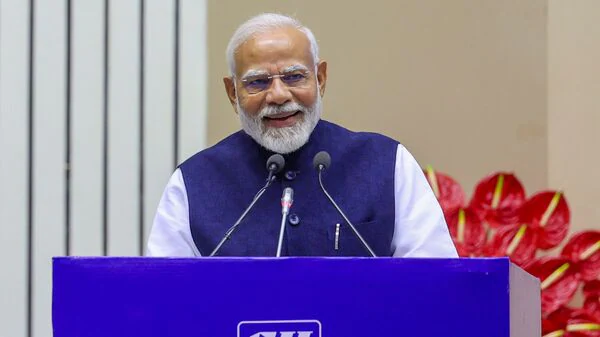Context:
Recently, the opposition parties moved a privilege motion against the Prime Minister of India for posting on social media “a portion of remarks” which were expunged from the proceedings by the Speaker.
What is a Privilege Motion?
- It is moved by a member when he feels that a minister has committed a breach of privilege of the House or one or more of its members by withholding facts of a case or by giving wrong or distorted facts. Its purpose is to censure the concerned minister.
Breach of Privilege
- When any individual or authority disregards or attacks any of the privileges, rights and immunities, either of the member individually or of the House in its collective capacity then the offence is punishable by the House.
What are Parliamentary privileges?
- These are special rights, immunities and exemptions enjoyed by the two Houses of Parliament, their committees and their members.
- Without these privileges, the Houses can neither maintain their authority, dignity and honour nor can protect their members from any obstruction in the discharge of their parliamentary responsibilities.
- Articles 105 & 194 of the Indian Constitution define the parliamentary privileges of both the Houses of Parliament and the legislature of a State respectively.
- Till now, the Parliament has not made any special law to exhaustively codify all the privileges. They are based on five sources, namely – Constitutional provisions, Various laws made by Parliament, Rules of both the Houses, Parliamentary conventions, and Judicial interpretations.
Classification of Parliamentary Privileges
- Collective Privileges: These are the privileges enjoyed by each House of Parliament collectively. Some of these privileges include –
- It has the right to publish its reports, debates and proceedings and also the right to prohibit others from publishing the same. The 44th Amendment Act of 1978 restored the freedom of the press to publish true reports of parliamentary proceedings without prior permission of the House. But this is not applicable in the case of a secret sitting of the House.
- It can exclude strangers from its proceedings and hold secret sittings to discuss some important matters.
- It can make rules to regulate its own procedure and the conduct of its business and to adjudicate upon such matters.
- It has the right to receive immediate information about the arrest, detention, conviction, imprisonment and release of a member.
- Individual Privileges: These privileges belong to the members individually. Some of these privileges include –
- They cannot be arrested during the session of Parliament 40 days before the beginning and 40 days after the end of a session. This privilege is available only in civil cases and not in criminal cases or preventive detention cases.
- They have freedom of speech in Parliament. No member is liable to any proceedings in any court for anything said or any vote given by him in Parliament or its committees.
- They are exempted from jury service. They can refuse to give evidence and appear as a witness in a case pending in a court when Parliament is in session
Privileges Committee
- It is a Standing Committee. It examines the cases of breach of the privileges of the House and its members and recommends appropriate action.
- This Committee consists of 15 members nominated by the Speaker in Lok Sabha, while the Rajya Sabha committee has 10 members.

